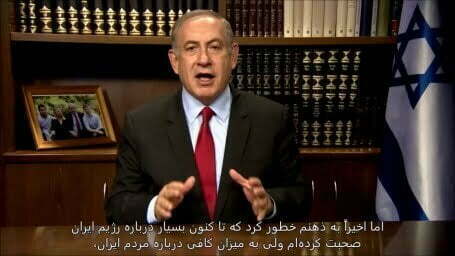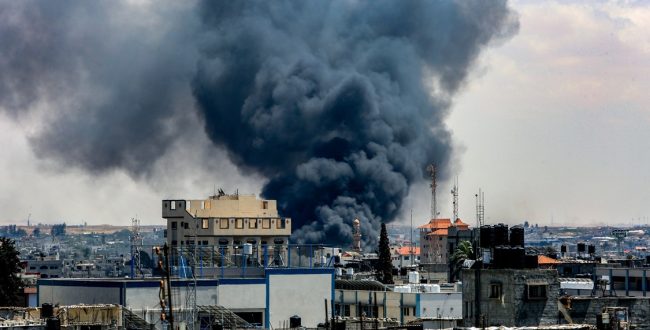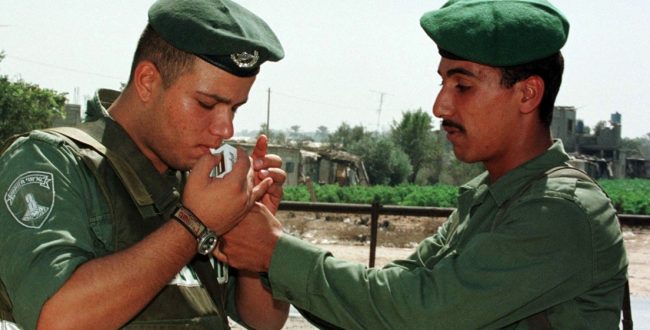In late January, Israeli Prime Minister Benjamin Netanyahu posted an unusual video on his Facebook page: a direct message to the people of Iran. “I know you’d prefer to live without fear. I know you’d want to be able to speak freely”, he said in English, accompanied by subtitles in Persian.
Netanyahu went on to recall the wave of protest that broke out in Iran after the presidential elections in 2009 and to laud Neda Soltani, the young Iranian woman whose death became iconic in the Green Revolution.
He praised Iranians for their proud history and rich culture, and criticized the regime for trying to instill hostility between Israelis and Iranians: “We are your friend, not your enemy. We’ve always distinguished between the Iranian people and the Iranian regime. […] Our two peoples can work together for a more peaceful and hopeful future for both of us.”
Netanyahu’s message quickly generated a wave of social media responses. Many Iranians, especially those in exile, praised Israel’s prime minister for directly addressing the citizens of Iran and for not conflating them with the regime. Some stressed the longstanding friendship between Iranians and Jews.
However, the video was largely met with fury and objection on the part of Iranians. Irate comments posted under the trending hashtag #ShutUpNetanyahu included vilification of Netanyahu as a “murderer of Palestinian children” and calls for the destruction of Israel. Many commenters noted that while Iranians unquestionably deserve freedom, Netanyahu cannot take the moral high ground in that respect.
They explained that the prime minister of Israel cannot accuse the Iranian regime of terrorizing civilians when his own government commits crimes against Palestinians and orchestrated the deaths of Iranian nuclear scientists.
While some comments may be attributed to fear of publicly supporting the prime minister of Israel, many convey genuine hostility towards Netanyahu, even by individuals associated with the Iranian opposition. A response that garnered particular interest was posted by Zahra Mousavi, daughter of Mir-Hossein Mousavi, the leader of the reformist opposition who has been under house arrest since early 2011.
Mousavi wrote on her Facebook page that Iranians, including the Green Movement, cannot see the people who are occupying Palestinians’ land and shedding their blood as friends, nor should they allow foreigners to exploit their own pain for political interests. She recalled the time when Neda Soltani’s mother attacked her daughter’s fiancé for his visit to Israel in 2010 and called it an abuse of her daughter’s reputation.
Exiled Iranian journalist and regime critic Reza Haqiqatnejad said that while directly addressing Iranians was not a bad idea, if Netanyahu wants to impact public opinion, help Iranians and disprove regime propaganda, he would be better off helping Palestinians realize their rights. According to Haqiqatnejad, this would be Netanyahu’s greatest service to Israel, Palestine, and the Iranian people.
This was not the first time that a direct message from Netanyahu to the Iranian people was met with hostility. In a Persian-language interview with the BBC in October 2013, Netanyahu incurred wrath by claiming that Iranians do not deserve to enjoy the pleasures of Western culture, including Western music and jeans. In response, Twitter was flooded with pictures of Iranians wearing jeans, including the famous photograph of Neda Soltani wearing jeans at the demonstration where she was fatally shot.
Although many Iranians who responded to his latest message on social media referred to the Palestinians, identification with their plight cannot explain the extent of hostility displayed.
In recent years, public debate in Iran regarding Israel and the Palestinians has grown alienated, marred by disappointment at what is seen as Palestinian ingratitude. The prevailing mood is that Iranians have more important things on their plate than the Palestinian issue and the Israeli-Arab conflict. Some regime critics have adopted the slogan ‘Neither Gaza, Nor Lebanon, I Give My Life to Iran’ to emphasize that Iran should not help the Palestinians as long as its own citizens are suffering political oppression and economic hardship.
It appears, therefore, that Iranians’ antagonism towards Netanyahu runs deeper than his policy towards the Palestinians. The anti-Iranian policy that Netanyahu has led in recent years, and especially his efforts to increase economic sanctions, was broadly opposed in Iran. Netanyahu may argue that he distinguishes between the Iranian people and their regime, but for many Iranians who are suffering the daily impact of the sanctions, his injurious policy conveys a different message.
Even the harshest opponents of the regime find it hard to see Netanyahu as a true friend of the Iranian people who cares for their wellbeing and identifies with their difficulties. In such circumstances, a video message voicing support for the average Iranian falls on deaf ears.
Translator: Michelle Bubis

















